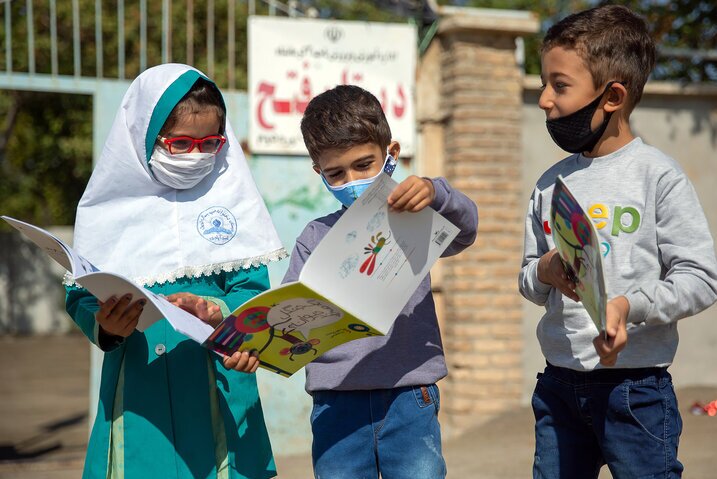Promoting book reading habits in children: a path to knowledge and growth

TEHRAN – Iran Book Week, an annual event held on November 15, known as Book, Reading and Librarianship Day, organized by the Iran Book and Literature House, has commenced with a range of planned programs. However, amidst the excitement, concerns about the reading habits of Iranians have come to the forefront.
One of the main objectives set by public libraries in Iran for the year 2025 is to cultivate a culture of reading among a wider audience, especially children, adolescents, and young people. However, with Iranians currently averaging a mere 18 minutes of reading per week, it remains questionable whether this ambition can be achieved within the remaining two years.
Investing in increasing the reading time among children and adolescents may prove to be a vital step in improving the prevailing state of reading in the country. However, it is disheartening to witness the abundance of children flocking to toy stores, while bookstores and libraries remain deserted.
Toys create attraction for these children, but books have not been able to create such attraction. The preference for giving or receiving anything other than books as gifts, the reluctance to spend money on reading from the family's economic basket, and the unawareness of the importance of reading by parents are all factors that lead to a future where children are devoid of creativity and confidence, burdened with thousands of challenges in expressing their desires and needs verbally or in writing, and handing them over to the society.
Reading books is one of the most important methods of enhancing capabilities in children and adolescents, an Iranian scholar has said.
Reading books has a direct impact on the future character of a child, as it enhances life skills and creates an interest in learning, ISNA quoted Zahra Zare as saying on Wednesday.
Reading books strengthens skills such as conversation with others to listen well, respect for others, increasing vocabulary, poetry, proverbs, strengthening imagination, creativity, curiosity, focus, and self-confidence, she added.
Reading books increases the vocabulary level in children and familiarizes them with different sentence constructions, writing styles, and expression methods, while also enhancing their understanding of the content, she mentioned.
She also highlighted the benefits of reading books in children, including increasing knowledge and empathy, and emphasized that reading books introduces children and adolescents to different cultures, ideas, and beliefs, and they will explore more in topics of interest.
She stated that reading increases children's understanding of their environment and helps their cognitive growth. She said, "Books are the best form of entertainment for everyone, especially a valuable source of learning for children, as they stimulate the child's mind and encourage critical thinking, allowing them to express their own opinions about what they have read."
She also considered focus and concentration as important reading skills, especially for reading aloud, and added, "Reading constantly calms the child's mind and body and allows them to focus on a specific task."
Reading books during childhood has a lasting impact on a child's success in education and life, she stated.
When reading a story, children use their creativity and imagination to create a visual representation in their minds, and they can guess what will happen next or come up with a similar story, she added.
She emphasized that it is better to start reading books from an early age and using audio books and radio stories for older children can also be very effective.
"It is better to choose various topics, including scientific subjects such as animal life, bees, ants, plants, trees, forests, mountains, seas, fruit benefits, and foods, as well as historical, scientific, and religious stories, reading historical letters, personal lives of scientific and religious figures, and any subject that increases the child's scientific, emotional, and intellectual level for the child to read."
She stressed that children's books should be full of colorful and cheerful images, have creative content, and be attractive for children to read.
"Books should have characters that can make the right decisions in difficult situations and have a happy ending," she mentioned.
“We need to initiate a love for reading books ourselves, and books should become a part of our lives like any other belongings and items. By doing so, we can cultivate a reading habit in our children from an early age,” she concluded.
SAB/
Leave a Comment